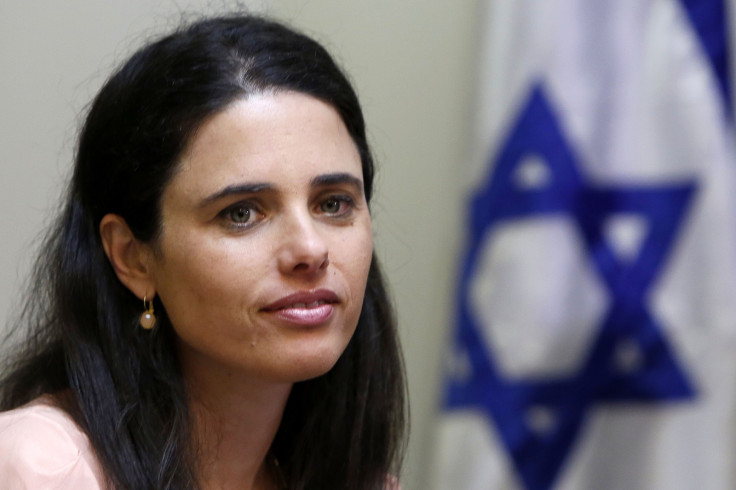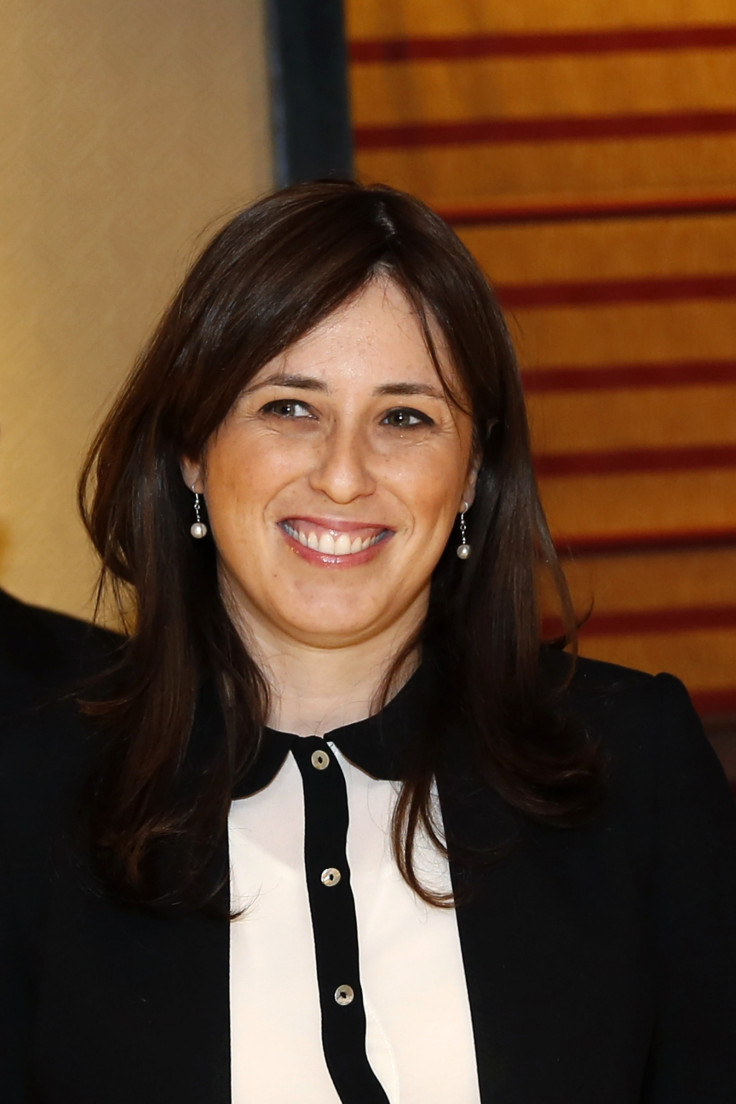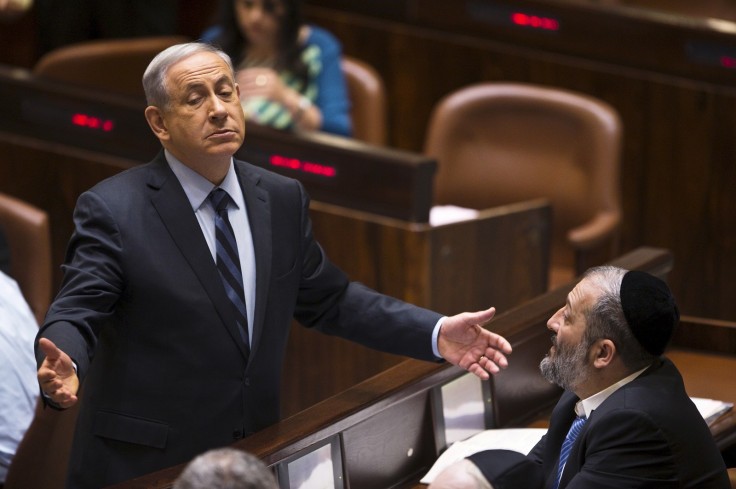Zion's women of rage: Israel's hardliners who reject the gentle touch

When hard-line former foreign minister Avigdor Lieberman ruled himself out of a future Benjamin Netanyahu-led coalition government in April, Israelis of all but the most extreme right-wing stripes will have breathed a sigh of relief.
Lieberman's anti-Arab rhetoric had reached fever pitch over the two-and-a-half years he had served as foreign minister, to the extent that his increasingly racist and volatile pronouncements had morphed from a rather tasteless joke to a liability, even for Netanyahu.
But mere weeks later Netanyahu put together the most right-wing government that Israel has arguably seen in decades, drawing in veterans such as Naftali Bennett as well as a new crop of right-wingers with their own controversial beliefs about future peace with the Palestinians.
Indeed, Israeli women are now at the forefront of hostility to the Palestinians and their dream of statehood.
Take Ayelet Shaked, the 39-year-old justice minister. She is a vocal opponent of a Palestinian state and infamously shared a racist essay that compared Palestinian children to baby snakes during the Gaza war.
Shaked made headlines a year ago by posting on her Facebook page a comment by the late Uri Elitzur, a former adviser and speech writer to Netanyahu and a settler leader. The comment justified bombing Palestinian civilians because they give shelter to "evil".
She is also an unabashed supporter of Israeli settlement in the West Bank, which is illegal under international law, and against a Palestinian state. She recently told Ha'aretz: "Around us in the Middle East there is total chaos... I'm not willing to give up on my land for this chaos."

Then there is the new deputy prime minister Tzipi Hotovely (a deputy to Netanyahu, who enigmatically appointed himself his own foreign minister), who on 21 May quoted religious texts to argue all the land between the River Jordan and the Mediterranean Sea is Israel's, leaving little room for a Palestinian state.
At 36, Hotovely is a young and upcoming Likud member who is also both supportive of settlements in the West Bank and against concessions to the Palestinians. It appeared that her comments in Hebrew about Israel's entitlement to all Israeli and Palestinian land was not just an effort to please an Israeli audience, she later echoed her comments in English.
In an inaugural address to Israeli diplomats, Hotovely said Israel has tried too hard to appease the world and must stand up for itself.
"We need to return to the basic truth of our rights to this country," she said. "This land is ours. All of it is ours. We did not come here to apologise for that."
That view is not unusual – indeed, Netanyahu said publicly during the March election that there would never be a Palestinian state on his watch – but it reflects a wider issue in Israel, that it is not just old men such as Netanyahu and Lieberman who encourage settlements and spurn the peace process; a younger, thirtysomething generation of hardliners are waiting in the wings.
We need to return to the basic truth of our rights to this country. This land is ours. All of it is ours. We did not come here to apologise for that
The growing right-wing sentiment of the Israeli youth was highlighted regularly during the Gaza war, with analysts suggesting its cause was the increased separation of Israelis and Palestinians in the years following the Oslo talks and the violence of the Second Intifada between 2001 and 2005.
While Arabs and Jews used to mix in many cities – older Israelis still recall driving to Gaza from Ashkelon to do their shopping and Arabs would visit the Old City from Ramallah and Bethlehem before the construction of the separation wall – now the two communities are almost entirely segregated in most of the country.
The recent efforts of the far right to ban Palestinians from buses in the West Bank is just one example of that.
The media also has its role to play. Prominent voices such as Jerusalem Post contributing editor Caroline Glick has given a voice to the rising right.
Glick, who was expected to be announced as a Likud candidate in January but was dropped at the last minute, has lashed out the European Union in recent weeks for funding pro-Palestinian groups and at Netanyahu's nemesis, US President Barack Obama, over Iran.
To her opponents she is a Dr Strangelove-style advocate of military aggression to solve Israel's problems. A keen armchair general, she recently advocated a new war on three fronts, "striking Hezbollah's missile arsenal; striking the Iranian Navy to limit its ability to project its force in the Bab al-Mandab; and conducting limited military operations to destroy a significant portion of Iran's nuclear installations".

Hugh Lovatt, an analyst at the European Council on Foreign Relations, argues the young and older generation of right-wing politicians in Israel do not differ hugely in their ideas towards the Palestinians.
But that while the older generation tended to keep their more radical views to themselves – when meeting international diplomats, for example – the younger generation are far more open.
The newer generation are more ideologically driven. In some way this has made them far more honest when it comes to articulating their real vision towards the Palestinians
This will make it difficult for younger right-wing politicians to deal with the US and Europe, which, while aware of the reluctance of the Israeli governments towards securing a real peace deal with the Palestinians, liked to at least maintain the charade that that was a goal.
"The newer generation [...] are more ideologically driven. In some way this has made them far more honest when it comes to articulating their real vision towards the Palestinians," he said.
"Especially when compared to Netanyahu who harbours the same core beliefs, but tries to spin two different lines depending on whether he is talking to Europeans or his own constituents."
As individuals, the actual role of Hotolevy and Shaked will differ, with the latter – as a member of the Security Cabinet and the number three position in Bennett's HaBayit party – having a great deal of power comparted to the deputy foreign minister, who will be expected to implement the policies formulated by Netanyahu.
How long the shaky coalition lasts with its one-seat majority in the Knesset is another question entirely. In order to satisfy the right-wing parties that Netanyahu needed to form a government after the election, he will be expected to tip his hat to the radical right, something that could easily derail his government if it is rejected by centrists such as Moshe Kahlon.
© Copyright IBTimes 2025. All rights reserved.






















